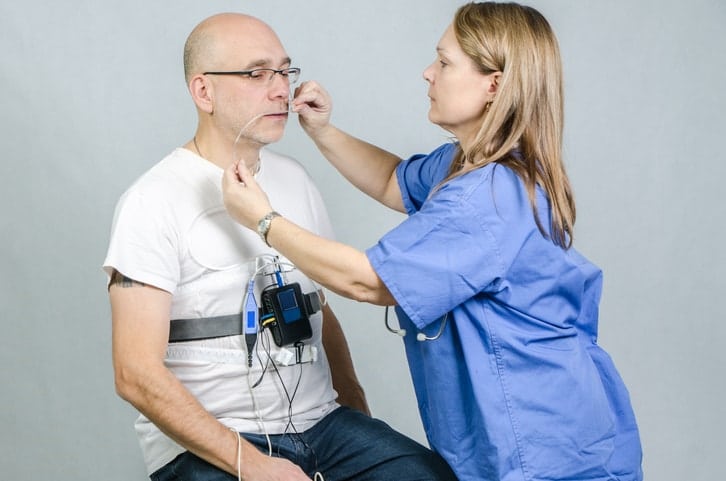Sleep apnea is a dangerous disorder that can affect your overall health, and a sleep study is the only way to definitively diagnose this condition. These tests have traditionally been conducted in a sleep lab, but in many cases, your doctor may be able to gather the information needed through a convenient at-home sleep test.
In this blog, the sleep doctors at eos sleep in New York, New York explain more about home sleep studies, including whether they produce the same results as an in-office test:
What is a home sleep study?
Sleep studies (also known as polysomnography) are tests used to diagnose disorders such as sleep apnea, a dangerous condition that causes you to stop breathing many times during the night. They collect important information about what happens to your body during sleep, including oxygen levels in your blood and your heart rate and breathing. It also monitors the different sleep stages and cycles you go through in a night to identify any possible disruptions.
Sleep studies can be performed in a sleep lab, but a patient may have the option to have this test performed at home.
What is the process like when compared to an in-office study?
If you have an in-lab sleep study, you’ll stay overnight to sleep and will have sensors attached to you to help gather and record the needed data. A technician will monitor you and be able to communicate with you through an intercom system. In the morning, you’ll be awakened and the technician will remove your monitors, after which you’ll be able to go home or to work. Your information will be then sent to your sleep doctor to be evaluated.
If you have an at-home sleep study, you’ll be given the monitoring equipment and shown how to use it. This may include a belt to wear around your upper chest to monitor your respiration, a thin nasal tube to measure airflow, and a finger clip to measure the amount of oxygen in your blood. The machine will record your data, which you’ll give to your doctor.
Who makes a good candidate for an at-home sleep study?
You may be a good candidate for an at-home sleep study if your doctor suspects you have obstructive sleep apnea, the most common type of sleep apnea. This is especially true if it’s suspected to be moderate to severe.
For other sleep disorders, such as circadian rhythm disorders, an in-lab sleep study may be needed.
What are the benefits of an in-home sleep study?
An at-home sleep study provides the following benefits when compared to an in-lab study:
- More comfortable – You’ll be in your own home, so you’ll probably be more comfortable, both mentally and physically.
- More convenient – This type of study is more convenient for anyone, but especially people who require specialized medical care at home, have a chronic illness or have older relatives or young children to care for.
- Less expensive – A home sleep study is usually a good bit less expensive than an in-lab test.
- More likely to reflect a normal night’s sleep – When you’re sleeping in your own home and in your own bed, the results gathered are more likely to reflect the way you usually sleep.
If you snore, make an appointment today with eos sleep of NY, NY to find out if an at-home sleep study could help you find out why. Getting the information needed to make an accurate diagnosis is the first step in devising an effective treatment plan that can help improve the quality of your sleep and health.

